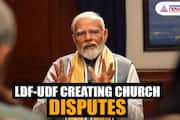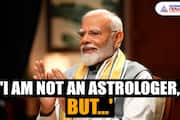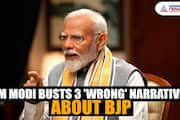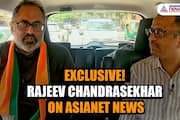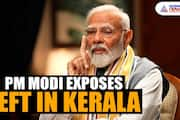Anitha's suicide is the story of how dreams are NEET-ly crushed

Most people in Tamil Nadu believe that if Jayalalithaa had not died, Anitha would have been alive. That sums up the disgust for the manner in which the political class has messed up the NEET (National Eligibility cum Entrance Test), which is the national medical entrance examination and forced it on the students, without preparing them for it.
It also has to do with the fact that Jayalalithaa remained steadfast in her opposition to NEET or any entrance exam for that matter and had promised during the 2016 assembly election campaign that she will get it removed.
Anitha committed suicide on 1 September at her home in Ariyalur district of Tamil Nadu, frustrated that even with a high score (1176/1200), her dreams of becoming Anitha, MBBS had been NEET-ly killed. The girl who aspired to be inside a hospital, saving lives, had chosen to become a corpse instead.
At the heart of the problem is the feeling that the right of meritorious students coming from poor families to get into a medical college had been snatched away by a New Delhi that sought to impose a `One Nation, One NEET'. Since 2005, the class 12 marks were what counted for admission to a medical school. Now the students were being told, those marks were not worth the paper they were printed on. Instead, their performance in NEET is what mattered.
The problem was with the syllabus. NEET paper was based on CBSE syllabus, vastly different from the state syllabus in vogue in most of Tamil Nadu. Akin to a volleyball player being asked to play basketball, arguing both after all, involve a ball. Little surprise then that most State Board students who did exceedingly well in their Plus 2 exams, fared miserably in NEET. Even the 1200-odd who got through were either the bottom layer who would not get a seat in any of the premier medical college or had undertaken coaching classes.
On paper, the idea of a common NEET sounds perfect as it does away with multiple entrance exams. What it does not account for is the heterogeneous nature of our education system, with its socio-economic and linguistic differences. It looks at India, or more specifically Bharat, through the prism of Lutyens Delhi, and assumes every student - be in Dibrugarh or Ramanathapuram - has access to a coaching centre to prepare him or her for NEET. It is this myopia of the policy makers that killed Anitha.
It also does not take into account that poor families who depend on a no fee or low fee government school or a scholarship in a private school, cannot afford to spend over one lakh rupees for NEET coaching in a year. Add to that, several district towns, leave alone villages, do not have a NEET coaching centre. It is like throwing children into the swimming pool without providing them with basic training and safety equipment.
What NEET does is to create a parallel system of schooling for medical aspirants - NEET coaching centres, all of them private players. This practically kills the schooling system because obviously if Plus 2 marks are not going to count, why would a student burn the midnight oil on school work?
An all-party meeting called by the DMK blamed the AIADMK government and the Centre responsible for what it says is “Anitha's murder”. The BJP warns those trying to blame Narendra Modi for it against doing so. What is lost in this political cacophony is the fact that all political parties are equally complicit.
If DMK wanted to, it could have blocked NEET when the UPA proposed it initially or in 2013, when the UPA government challenged the Supreme court order abolishing NEET. It was left to Jayalalithaa to shoot off letters refusing to let Tamil Nadu be part of NEET. The students and parents assumed the post-Jayalalithaa AIADMK, despite being powerless, would be able to get the Centre to give it exemption. Their hopes got a boost when Union minister Nirmala Sitharaman promised it would. Anitha and others were mortified to find the Centre doing a U-turn in the Supreme court on 23 August, saying one state cannot be given exemption.
Is NEET per se, a bad thing? No. But the way it has been implemented, yes. The Centre should have first ensured the syllabus for everyone is common and in sync with NEET syllabus. It is extremely unfair to rob a student in a rural area the chance to become a doctor just because he or she studies a different syllabus. The student is made to suffer because the state does not change the syllabus. It is equally wrong to expect a student to compete when you do not even provide most CBSE textbooks in the local language.
With education in the concurrent list, both the Centre and the states have a say but obviously, depending on the political equations, either party rides roughshod. In this case, the Centre knows a divided and weak AIADMK can hardly stand up to what the BJP orders. The demand to bring education back to the state list, from where it was moved during Indira Gandhi's tenure in 1976, is gaining ground.
The takeaway from the unfortunate episode is that only the affluent who can spend money on coaching classes can crack NEET. Those like Anitha, who aspire to fly find their wings clipped because there is very little fuel to power their engines.











